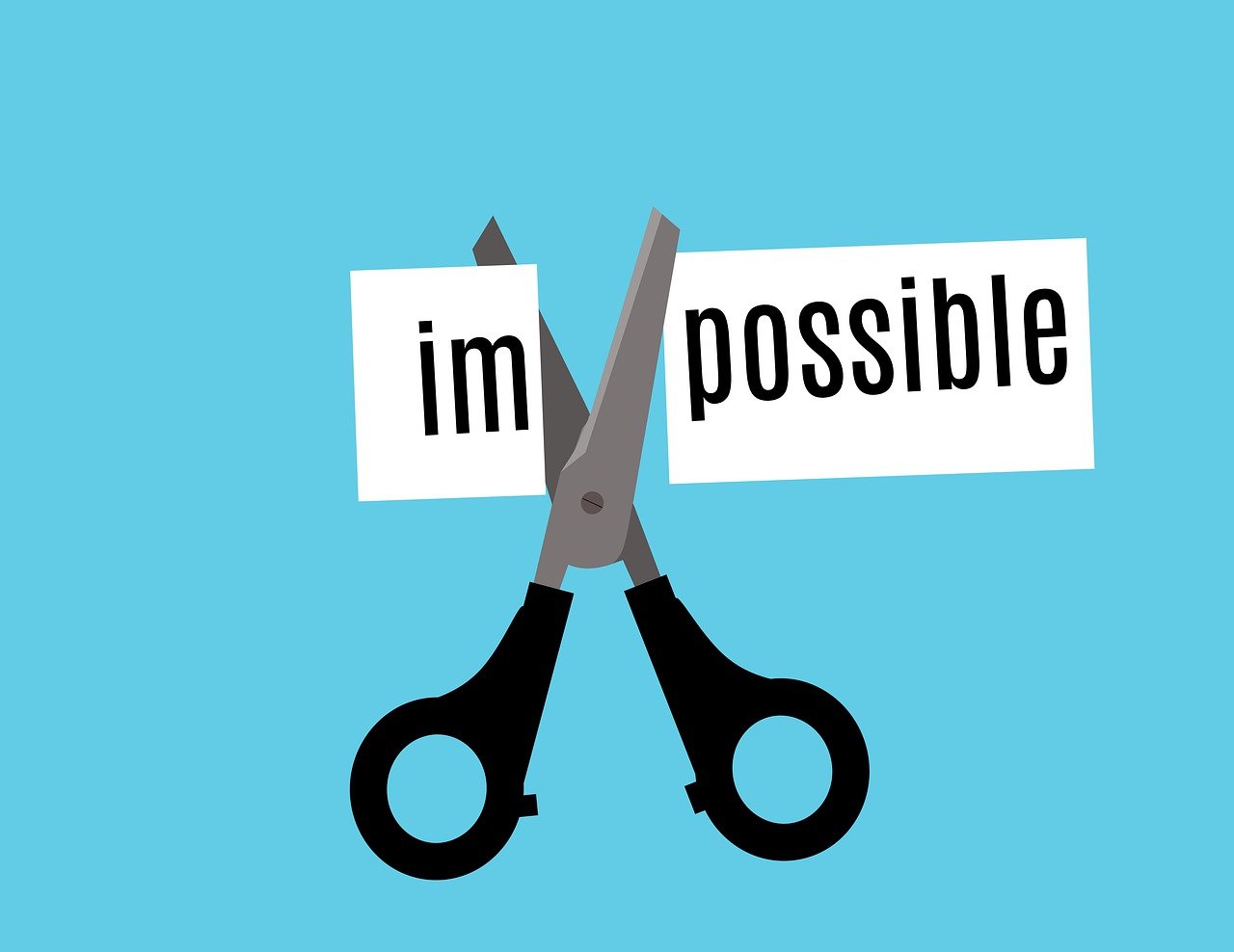Unlock a thriving English-Vietnamese translation career by mastering client acquisition
I started my journey in English-Vienamese translation with a dream. Like any dream job, it required dedication and a touch of creativity. Building a successful career in this field is not just about translating words. It’s about connecting cultures and understanding nuances. The demand for skilled translators is on the rise. This is due to globalization and the expansion of businesses into new markets. I realized early that hard work and continuous learning are essential. This isn’t a full stack career where you learn once and coast along. Instead, it’s a dynamic field that keeps me on my toes. Every project is a chance to grow and refine my skills.
Key Takeaways
-
Understand the rising demand for English-Vienamese translators due to globalization.
-
Build a strong foundation in both languages through media, literature, and conversation.
-
Network through industry events and online forums to find potential clients.
-
Develop a successful career by showcasing skills in a robust translator portfolio.
-
Use client testimonials and referrals to build credibility and attract new opportunities.

Understanding the Demand for Translators
When diving into the thirst for translators, it’s clear the need for English-Vienamese translation is skyrocketing. This isn’t just about words; it’s about bridging cultures. With globalization in full swing, businesses are jumping into new markets like eager frogs. That’s where we come in.
Imagine you’re a business eyeing Vietnam’s bustling markets. To thrive, you need accurate translations to break through language barriers. This is where English-Vienamese translation shines. Legal, medical, and technical sectors are especially hungry for these skills. But hey, this isn’t just a walk in the park. It requires a keen understanding of the audience’s needs.
Learning about your audience is no easy feat. It demands research and dedication. Knowing the industries that need translation services is crucial. This is the foundation of a dream career.
Embark on this journey, and with a bit of hard hustle, you could land your dream job. Translation isn’t just about words; it’s about building bridges, one phrase at a time.

Skills Required for Translation Success
Exploring essential abilities for success in English-Vienamese translation, it’s clear that linguistic prowess is just a piece of the puzzle. Comprehending cultural nuances is equally crucial. Imagine translating a document without understanding its cultural context—risky business! Then, mastering subject matter expertise adds another layer of trustworthiness.
Continuous learning? A must! Staying updated with industry trends is like keeping your translation toolkit sharp. CAT (Computer-Assisted Translation) tools? They’re your new best friends, ensuring efficiency and precision.
Picture this: You’re translating a technical manual, and CAT software helps maintain consistency. Genius, right? Balancing these skills can truly shape a successful career.
Let me tell you, it’s not all rosy. It takes hard grind and genuine dedication. But that’s the beauty of it—turning challenges into stepping stones.
To sum up, the path to a full stack career in English-Vienamese translation is challenging yet rewarding. Embrace the hurdles, and you might just find yourself on the brink of a successful career. Keep pushing, and that dream job might not be so far off.

Building a Strong Foundation in Both Languages
Developing a solid base in both English and Vietnamese is like laying the bricks for a sturdy house. It’s not just about knowing the words; it’s about feeling the rhythm and the music of each language. I immerse myself in Vietnamese literature and English media, absorbing idiomatic expressions and cultural nuances. This isn’t just a task—it’s a daily adventure! Imagine diving into a Vietnamese novel, then catching the latest English film. Each experience enriches my understanding, weaving a rich tapestry of language skills.
However, it’s not all sunshine and rainbows. Building this linguistic foundation takes hard dedication. Picture this: you’re at a Vietnamese market, negotiating in your adopted tongue. That’s the real test, right? Every conversation sharpens my skills, turning challenges into stepping stones toward that dream career.
Being well-versed in both languages opens doors to opportunities. You might even find yourself translating not just words, but entire worlds. So, when I think about my dream job, it’s clear that a strong bilingual foundation is the cornerstone of success.

Identifying Potential Clients and Markets
Let’s talk about spotting potential clients and untapped markets. In my journey with English-Vienamese translation, I’ve noticed clients often hide in plain sight. Industries like tech, legal, or healthcare are always in need of language wizards. I dig into these sectors, scouting for those who whisper, “We need translation help!”
Networking is my trusty compass in this treasure hunt. Engaging with industry insiders, I often hear the whispers of opportunities. My approach is simple: attend events, build connections, and listen more than I speak. It’s like fishing, but instead of fish, I reel in golden opportunities!
Through my experiences, I’ve learned that perseverance is key. A sprinkle of creativity helps too. Sometimes, I find a niche by accident, like stumbling upon a hidden gem. And let’s not forget the hard moments—those are the best teachers. Each setback is a stepping stone to my dream job.
In this quest, I remind myself: every interaction is a potential door to a successful career. The adventure continues!

Networking in the Translation Industry
When it comes to building connections within the translation field, strategic networking proves invaluable. I find myself navigating through a sea of opportunities, seeking meaningful connections. Engaging with fellow English-Vienamese translation professionals is more than just exchanging business details; it’s about creating lasting relationships. I often attend industry events and mingle with peers, exchanging insights and sharing experiences. This approach not just opens doors but also provides a platform to showcase my skills and passion.
What’s even more intriguing is how each conversation can unexpectedly lead to a new project or a dream career move. It’s like planting seeds and watching them bloom. These interactions offer real-time industry updates and trends, keeping me in the loop. Watching my network grow feels like witnessing a garden flourish.
For those interested in furthering their career, CareerVillage has discussions on career strategies on Medium. Their insights help refine approaches to networking and client acquisition. The potential to connect with someone who might just offer your next big project is thrilling.
Exploring Freelance vs. Agency Work
Weighing freelance gigs against agency roles in English-Vienamese translation can feel like choosing between apples and oranges. I’ve trodden both paths, and each offers distinct flavors. Freelancing grants me the freedom to chase my dream job while sipping coffee in my PJs. It’s a world where I call the shots, but it also demands the grit of hard-work. Clients don’t just fall from the sky; they’re wooed with persistence and savvy marketing.
In contrast, agency life might resemble a well-oiled machine. Here, I don’t scramble for projects; they arrive neatly packaged, like pizza delivered on a lazy Friday. But, there’s often less room for personal flair.
A pivotal factor? Personal goals. If stability calls my name, agencies might be my jam. Yet, if the thrill of steering my ship excites me, freelancing beckons. Both paths can lead to a successful career, yet they cater to different souls. Over on YouTube, this video explores the nuances further.
Crafting an Impressive Translator Portfolio
Showcasing your translation prowess demands a well-crafted collection of your best works. I always think it’s like a vibrant gallery displaying my unique skills in English-Vienamese translation. I pick samples that highlight my versatility across industries, from legal documents to medical jargon. Making sure to include various styles shows that I can adapt to any assignment.
Certificates and specialized training are my badges of honor. They stand out in my portfolio, shouting my dedication to continuous learning. I remember a time when a simple certification made all the difference in landing my dream career.
To spice things up, I sprinkle in client testimonials. These stories showcase my reliability and the satisfaction of those who have walked this journey with me. I find they are like a cherry on top, sweetening the deal for potential clients.
Finally, I strive to keep everything neat and easy to navigate. After all, a cluttered portfolio is like a messy room—hard to find what you need. (For more tips, check this introduction: Next Steps.
Pricing Strategies for Translators
Crafting effective pricing tactics is a puzzle worth solving. For English-Vienamese translation, understanding industry norms and the value of your services is key. I once found myself in a pickle, unsure of what to charge. So, I researched, compared, and even asked fellow translators.
Offering various pricing models, like per-word or hourly rates, can win over diverse clients. It’s like having a toolbelt full of options. Once, I had a client who preferred a flat fee. Another liked the flexibility of hourly billing. Being adaptable is my secret sauce.
The trick is to stay flexible and open to negotiation. A client once haggled with me, and I discovered their true budget. We struck a deal, and it was a win-win! If you’re curious about more pricing insights, a fellow translator shares valuable tips here.
In my experience, the right pricing strategy isn’t just about numbers. It’s about building trust and demonstrating the value I bring to their dream job. So, keep your ears open, stay curious, and let your pricing reflect your worth.
Effective Communication with Clients
Mastering communication with clients is the lifeline of a successful career in English-Vienamese translation. I always aim for clarity by setting expectations from the get-go. It’s not just about words; it’s about ensuring the message hits home. I once worked with a client who required daily updates. It was a bit like watering a delicate plant—constant care, but the reward was blossoming trust.
Feedback isn’t something I shy away from either. Every note is a stepping stone toward improvement. I recall one project where feedback was as detailed as a novel. At first, it felt like climbing Everest, but it turned into a growth journey. In the end, the client was thrilled, and so was I.
Balancing professionalism with a personal touch is my secret weapon. I sprinkle in a bit of humor to lighten the mood, especially when a project feels like herding cats. This approach has turned many first-time clients into repeat customers. It’s like crafting a full stack career, where each layer—communication, feedback, and humor—builds a solid foundation.
Navigating Cultural Differences in Translation
Considering cultural differences is key in English-Vienamese translation. I’ve found that understanding local customs and traditions isn’t just beneficial—it’s essential. Once, I translated a marketing campaign that nearly flopped because it unintentionally used a culturally sensitive phrase. A quick adjustment saved the day.
I often see cultural nuances as hidden layers within the language. It’s like peeling an onion—each layer reveals more depth. For instance, idioms in Vietnamese can be a puzzle. I remember scratching my head over one that involved cats and fish. It took a local friend to help me decode it, turning confusion into clarity.
Cultural sensitivity isn’t just about avoiding pitfalls. It’s about building bridges. I once worked on a project that required intricate knowledge of Vietnamese holidays. Incorporating these cultural elements made the translation not just accurate, but genuinely relatable.
The importance of cultural awareness can’t be overstated. It transforms a simple translation into a meaningful message. If you’re aiming for that dream job in translation, investing time in cultural understanding is more than just hard work—it’s the pathway to success.
Managing Translation Projects Efficiently
Managing translation projects can feel like juggling flaming swords. Deadly if you slip, but a thrilling dance when you get the rhythm right. For me, efficiency starts with organization. I rely heavily on digital tools like Trello and Asana. They keep tasks in order, and my mind uncluttered.
English-Vienamese translation projects often come with unique challenges. I always double-check cultural nuances to avoid missteps. It’s like playing chess; you need to think several steps in advance.
Keeping clients in the loop is another key piece. I maintain clear lines of communication. This ensures that we’re all on the same page and helps build trust. Nothing beats a happy client.
Balancing multiple projects isn’t a walk in the park, but prioritizing tasks helps. I focus on high-impact items first. This way, I can meet deadlines while still delivering quality.
The dream career in translation? It’s not just about skill but adaptation. Each project teaches me something new, turning hurdles into stepping stones towards a successful career.
Best Tools for English-Vienamese Translators
Figuring out the right tools for English-Vienamese translation is like finding the perfect fishing rod for a big catch. It makes all the difference. My dream career relies heavily on having the right gear, and yours can too. SDL Trados is a trusty companion, enhancing productivity with its sophisticated features. MemoQ isn’t far behind, offering robust support for managing complex projects. Wordfast is another gem, known for its speed and ease of use. These tools are my partners in crime, always ready to tackle any translation challenge.
I can’t forget about staying current with the latest tech trends in our field. New tools pop up like mushrooms after rain. Keeping an eye out for innovations ensures I don’t miss out on what could make my job easier.
Building a full stack career in this arena requires dedication and a willingness to adapt. It’s hard but rewarding. That’s the secret sauce. Embracing new tools isn’t just smart, it’s essential for anyone serious about English-Vienamese translation.
Staying Updated with Industry Trends
Keeping a finger on the pulse of trends in the translation industry is crucial. I often find myself immersed in the latest updates, ensuring my skills stay sharp. There’s nothing like the thrill of discovering a new tool that makes English-Vienamese translation smoother than ever. Webinars and workshops are my go-to for this, offering fresh insights and techniques.
The market is like a living organism, always shifting and evolving. I’m constantly scanning for new opportunities and niches. Exploring different fields keeps my dream job vibrant and exciting. It’s a bit like being a detective, piecing together what clients need before they even realize it.
Change is the one constant, and I embrace it. Whether it’s new software or emerging client needs, adaptation is key. This approach helps me stay competitive while others play catch-up.
The hard part? Balancing all this with actual translation projects. Yet, the satisfaction of providing top-notch, culturally sensitive translations makes it all worthwhile. It’s a rewarding journey, full of challenges, but the dream career is within reach.
Establishing a Personal Brand
Carving out a distinct identity is crucial in the competitive world of English-Vienamese translation. My journey starts with understanding my unique offerings and presenting them authentically. I tell stories about my experiences and expertise, making sure they resonate with my audience. This isn’t just about showcasing skills; it’s about connecting on a personal level.
The art of translating goes beyond words; it’s about bridging cultures. I often find myself navigating through idioms and cultural nuances, ensuring every translation is accurate and meaningful. This helps me build trust with clients, making them feel understood and valued.
To stand out, I make use of online tools and social media. These are my stage, where I can highlight my dream job achievements and engage with potential clients. This digital presence is like a magnet, drawing opportunities my way.
And then there’s the feedback loop. It’s like gold, guiding me to improve and perfect my craft. Listening to clients, making adjustments, and celebrating successes together is part of the journey. Over at Medium, they talk about taking your next steps in building a brand, which aligns perfectly with my strategy.
Marketing Yourself to Potential Clients
Crafting a strategy to reach out to potential clients is like hunting for treasure. I start with a clear understanding of the English Vietnamese translation market and identify key industries that require this service. It’s not just about finding any job—it’s about landing my dream career. I focus my marketing efforts on highlighting my unique skills and expertise in the field.
Networking is my secret sauce. I mingle at industry events, and engage on social media. This is where I showcase my trk skills. My hard-earned testimonials act as social proof, helping build trust with new clients. Each client interaction is a chance to demonstrate my commitment to quality and professionalism.
To maximize my reach, I cleverly use a mix of online marketing and targeted referrals. These methods allow me to connect with clients who value the dedication and precision I bring to each project. My dream job isn’t just about skill—it’s about building relationships and continuously refining my approach to client acquisition.
Importance of Testimonials and Referrals
Understanding the role of client endorsements and recommendations is crucial in the competitive field of English Vietnamese translation. These personal testimonials aren’t just words on a page; they’re golden tickets. They can open doors to new opportunities and transform a potential client’s uncertainty into confidence. I often tell folks, “If you have a satisfied client, you’ve got a walking advertisement.” I love seeing how a few positive words can turn the tide on securing that next big project.
The beauty of this process lies in its simplicity. Happy clients often bring more customers, like a snowball gathering momentum downhill. This ripple effect is invaluable for building a reputation that speaks for itself. And let’s face it, we all trust a friend’s recommendation over a flashy ad any day.
For anyone serious about growing in translation, focus on delivering excellence. You might want to check out how some experts explain the ripple effects of persuasive communication here. It’s fascinating how simple words can unlock a thriving career with the right touch of sincerity.
Conclusion
So, what’s the big picture here? Becoming a successful English-Vienamese translator involves more than just language skills. It’s about understanding client needs, adapting to cultural nuances, and effectively marketing your services. The right mix of skills and strategies can set you apart.
Remember, it’s not just about translating words—it’s about building connections. By networking and offering top-notch service, you can open doors to exciting opportunities. Stay dedicated, keep learning, and watch your career flourish. After all, the world is your oyster, and there’s always room for more pearls of wisdom.
FAQ
-
What industries have the most demand for English-Vienamese translation?
I’ve found that legal, medical, and technical sectors are always on the lookout for translators. These industries often require precise language skills and cultural awareness. By focusing on these areas, I can tap into a steady flow of translation opportunities.
-
How can I improve my proficiency in both English and Vietnamese?
Immersing myself in literature, media, and conversations is a great start. Understanding cultural nuances and idiomatic expressions is also crucial. It’s like learning to dance to the rhythm of two different songs—challenging but rewarding.
-
Should I consider working as a freelancer or with an agency?
This depends on my career goals. Freelancing offers flexibility and independence. Working with an agency might provide regular projects and stability. It’s important to weigh the pros and cons to see which suits my lifestyle and ambitions better.
-
What are some effective ways to network in the translation industry?
Attending industry events and joining professional associations have been beneficial for me. Participating in online forums helps too. Building relationships in these settings sometimes leads to referrals and repeat business. It’s all about who you know, right?
-
How can I ensure my translations respect cultural differences?
Cultural sensitivity is key. I always make sure my translations convey the intended message without offending anyone. Understanding the cultural context helps prevent misinterpretations. It’s like being a cultural detective, piecing together the clues for a perfect translation.




